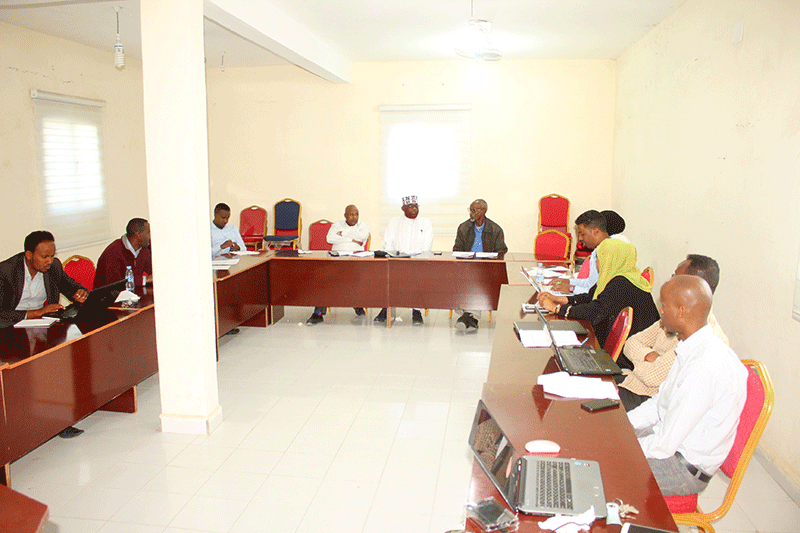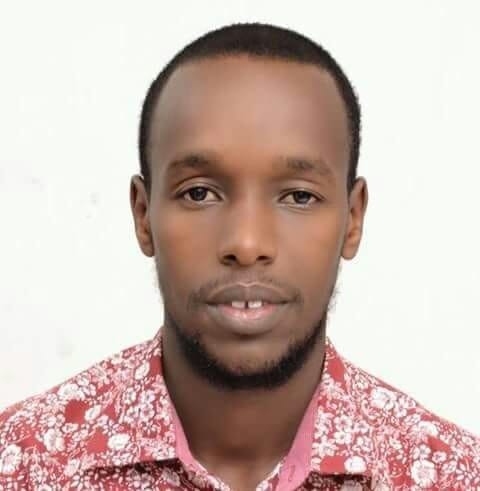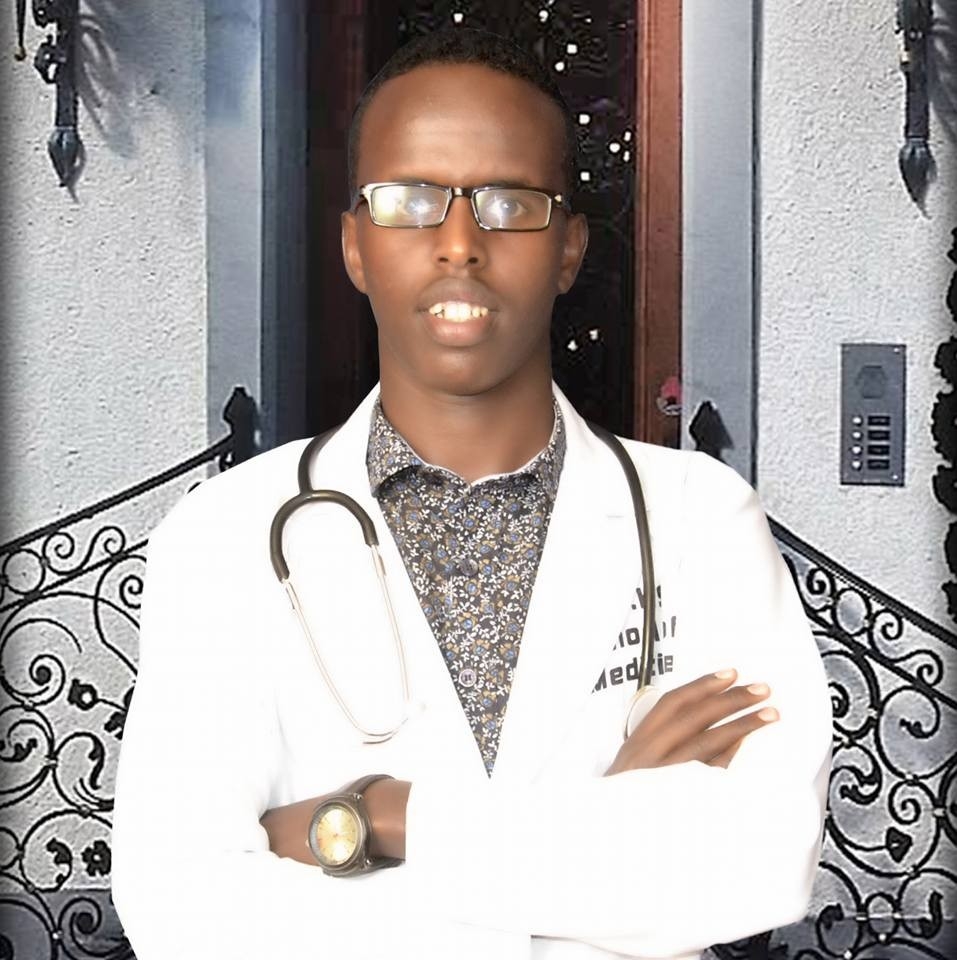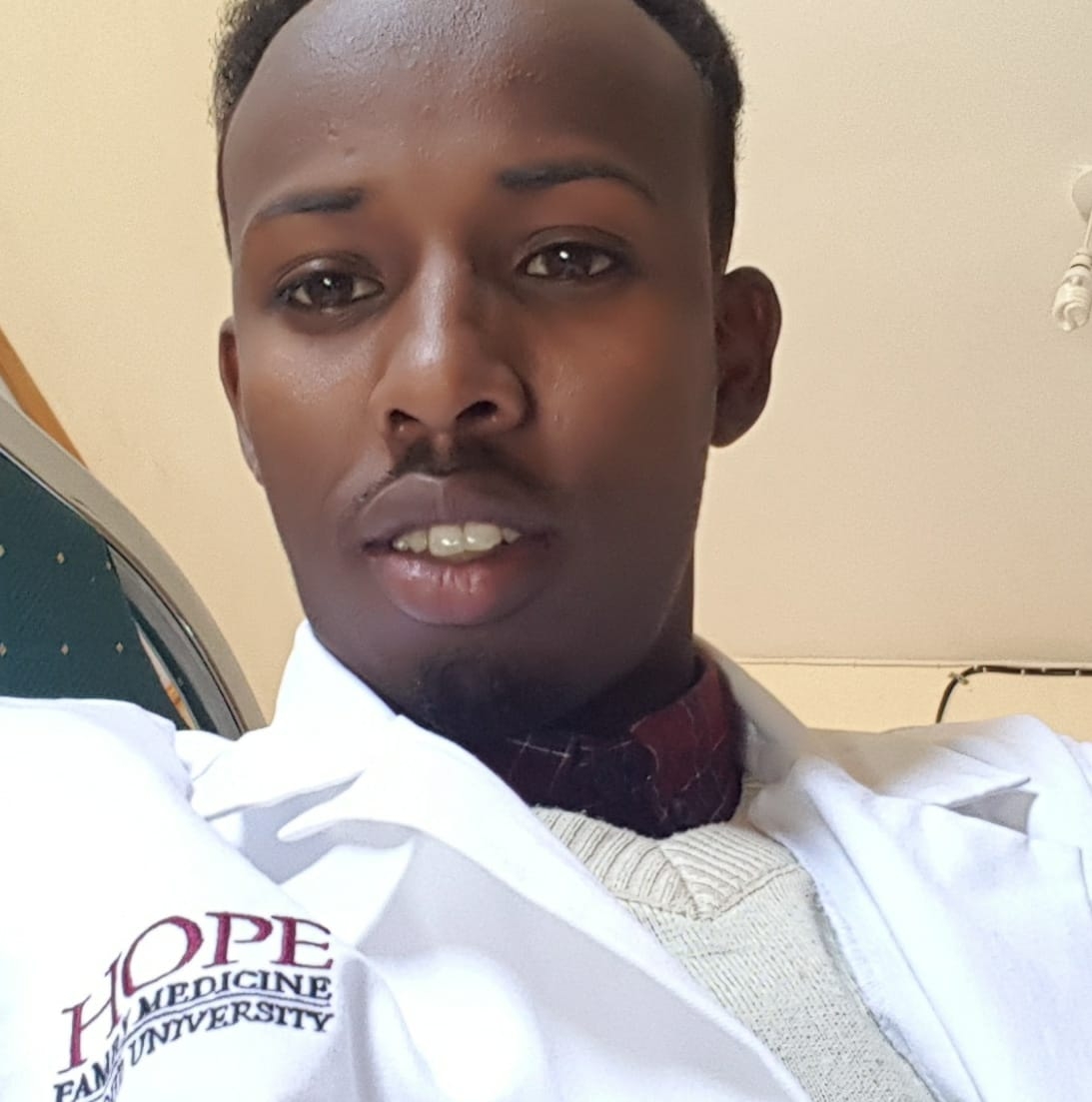Amoud Dental School & Oral Health was established in the academic year 2008-2009 with the aim to produce dental surgeons optimally prepared to take part in the rapidly changing health care environment of our country. Health care systems depend not only upon infrastructure and resources, but also on the availability of skilled human resources. The changing pattern of oral diseases, their frequency and severity, and the disparity of distribution between developing and developed countries require changes in the strategies of dental education and oral health care delivery systems. Amoud College of Health Sciences was established to effectively address one of the Somaliland/Somali most neglected and pressing health problems which is dental and oral health care.
The current situation features huge unmet treatment needs, striking inequality in delivery systems and absence of an adequate community-oriented prevention system. People in developing countries are burdened by a significant number of oral diseases, which are further aggravated by poverty, poor living conditions, lack of dental awareness, and the absence of appropriate policies and funding to provide basic oral health care. In the wake of changing culture and lifestyle, new dental diseases are emerging. While future patterns of disease and the efficacy of future treatments are difficult to predict, the demand for dentistry is likely to increase. Amoud Dental was started to produce competent dental surgeons who are able to deal with the dental and oral health problems.
The curriculum is reflecting modern trends of dental education and is designed to equip the graduates with the, knowledge, skills, attitudes and abilities to adapt rapidly to changing professional circumstance. It is student-centered approach with emphasis on self-learning to develop in the students the ability and willingness to pursue their own learning after graduation.
Objectives of the School
To produce highly trained doctors and dental assistants who will play a great role in the delivery of dental and oral health care. In order to achieve this objective the School will:
¨ Provide these trainees with the knowledge, skill and attitudes to become competent dentists.
¨ Promote Dental knowledge through research in all areas related to dental and oral health care including Basic science, clinical science studies, cultural and behavioral aspects of Dental methods for delivering dental health care and dental education.
¨ Aim at promoting exemplary, primary, secondary and tertiary dental and oral health care and related community services.
¨ Undertake continuing dental education to maintain and improve the competence of the practicing professional and serve as a dental recourse center (DRC) for dental professionals and Organizations involved in dental health care.
¨ Participate in the Development and improvement of the quality of dental services in the country
Goals
The goal of School of dentistry is to produce competent Doctors who can deal with the prevailing health problems of the country, competent to practice preventive, promotive, curative and rehabilitative oral health in respect to the commonly encountered dental health problems and Possess the right attitude for continued self learning and to seek further expertise or to pursue research in any chosen area of dentistry.
Vision
To be an excellent school of dental surgeons and dental technicians
Mission
The mission of School of dentistry is to contribute to knowledge and to produce dental graduates fully armed with practical and intellectual skills appropriate to the needs of our community. The school will work and make sure that the students acquire such skills using modalities that encourage active learning in the context in which they will later function as dental professionals.
Strategy
¨ Most subjects are taught with a variety of methods including lectures, projected materials with lecturer notes presented to the students, practical work and seminars.
¨ Lab and clinical practice
¨ Self directed learning
¨ Group dynamics
¨ Team work
¨ Staff training and development
Criteria for admission
Applicant to this School must have:
¨ Completed secondary education
¨ Passed the general requirement courses of the freshman year with at least a GPA of 3.00
Evaluation
* Student assessment characteristics
- Theory, practical and oral evaluation
- credit hour evaluation
- Assignment and presentations
* Curriculum evaluation
- End of course student feedback
- Courses coordinators report
- Yearly review
Graduation Requirements
The credit hour per semester forms the basis of awarding a Bachelors degree at the faculty. In order to be eligible for the degree, the student must successfully earn a minimum of 280 hours. The duration for completing theses hours is four years, which are divided into the following manner.
¨ Basic science study: two years
¨ Pre-clinical study: one year
¨ Clinical study: one year
Weekly Meeting of AUCHS, on Monday, 24 Dec, 2018
Written by Amoud Web Team
It was established in the academic year 2010-2011 with the aim of producing qualified pharmacists who would contribute to the post war recovery of Somaliland pharmaceutical system. Its academic program is designed for four years of study leading to the degree of Bachelor of pharmacy. The pharmaceutical sector has been the least developed area in Somaliland and Somalia. Prior to the civil war, the government was unable to procure drugs. Drug supplies were largely dependent on foreign aid. Today, drugs are brought to the country mainly through two channels: through the international aid organizations or through the private sector. Pharmaceuticals have become a big business and pharmacy shops have mushroomed in every corner of all towns and cities. Although private pharmacies supply remote areas with much-needed drugs, the quality of the drugs sold in those pharmacies has been questioned. In addition, most of the drugs used are suspected to be generic, thus putting the already vulnerable patients to great risk. In order to find a solution for this problem the School of Pharmacy was established.
OBJECTIVES OF THE SCHOOL
One of the important concern of the faculty of pharmacy is to provide the society with skilled pharmacy graduates who are capable of practicing in all modern pharmaceutical fields and dedicated to the betterment of health service.
This can only be achieved by the approach used by the faculty of pharmacy through offering an educational philosophy that promotes a combination of critical thinking and practical application.
Vision
The faculty of pharmacy, Amoud university, seeks to be distinguished internationally by providing up-to–date high quality pharmacy education and biomedical research, as well as by fostering continuing professional development and community involvement.
Mission
The faculty of pharmacy, Amoud university, is committed to ensuring an educational environment that fosters progressive development in teaching, learning, training and research, to provide the health care system with pharmacists capable of meeting the challenges of the rapidly evolving pharmacy profession, and to establish an interactive partnership with the pharmaceutical industry and the community.
Strategy
*Most subjects are taught with a variety of methods including lectures, projected materials with lecturers’ notes presented to the students, practical work and seminars.
*Problem based learning.
*Self directed learning.
*Group dynamics.
*Team work.
*Early practical training at all levels of health services (individuals, families and communities)
*Staff training and development.
Study program
Academic year starts 15th of September and ends 2nd week of July every year. The duration of course is 4 years program duration of studies on basic sciences, social sciences and general education is 2 years.
Duration of major pharmacy topics and clinical training are 2 years.
School Contact Information:
| Dean School of Pharmacy | Assistant Dean | Assistant Dean |
| Mr. Abdirashid D. Aye | Mr. Abdirisak Jirde | Mr. Bashir Aleel |
| 00252634459222 | 00252634455268 | 00252634557400 |
|
This email address is being protected from spambots. You need JavaScript enabled to view it.
|
This email address is being protected from spambots. You need JavaScript enabled to view it. | This email address is being protected from spambots. You need JavaScript enabled to view it. |
Students enrollment of the school :
| Year | Male | Female | Total |
| First Year | 11 | 12 | 23 |
| Second Year | 9 | 8 | 17 |
| Third Year | 15 | 24 | 39 |
| Fourth Year | 15 | 10 | 25 |
| Total | 50 | 54 | 104 |
Number of Students Graduated from The School:
| Year | Male | Female | Total |
| 2018 | 10 | 11 | 21 |
| 2017 | 5 | 4 | 9 |
| 2016 | 10 | 4 | 14 |
| 2015 | 10 | 1 | 11 |
| 2014 | 15 | 2 | 17 |
| Total | 55 | 22 | 72 |
It was established in the academic year of 2010-2011 with the aim to produce medical technologist with knowledge, skills and attitudes who are able to fill the gap in the health working force of the laboratories. Its academic program is designed for four years of study leading Bachelor of Medical Laboratory Technology (BMLT).
It’s curriculum is community oriented education and combines theoretical knowledge of the basic natural and medical sciences with the skillful use of sophisticated equipment and techniques to provide vital information that may be required for diagnosis and treatment of diseases, quality control, quality assurance and research to formulate the policies and measures for the prevention of diseases. The educational program is designed to produce professionals who can use the knowledge they have acquired to develop their countries and improve the quality of lives of their people.
There are Inadequacies in laboratory infrastructure and a low national priority and neglected, not only because of more pressing health problems and emergencies but also because of lack of manpower, skills and equipment which finally leads to underutilization of laboratory services available. Health care programs dictated by donor agencies often do not consider broader regional needs or make provisions for overall sustainability. The migration of skilled laboratory personnel due to the civil unrest deteriorates the situation.
The majority of hospitals cannot consistently provide even these basic services in a quality-controlled fashion. unreliable and inaccurate laboratory diagnostic testing leads to unnecessary expenditures in a country already plagued by resource shortages, promotes the perception that laboratory testing is unhelpful, and compromises patient care. Amoud School of lab technology was established to initiate new source of producing skilled laboratory personnel to ensure accurate laboratory services that contribute well to the patient care and secure physicians' confidence in applying laboratory results to their daily practice.
The curriculum is community oriented education with emphasis on self-learning to develop in the students the ability and willingness to pursue their own learning after graduation to become competent lab technicians and community oriented. The School is also committed to advance knowledge about health through research in all areas related to health care including basic science, clinical science education and studies related to methods for the delivery of health care.
Introduction
The BSc. Medical Laboratory Science is a professional course which is intended to equip the trainees with knowledge, skills and attitudes to enable them to work as Medical Laboratory Technologists. It’s the first four(4) year degree course in medical laboratory technology ever establish in SOMALILAND and SOMALIA. Medical laboratory technology training combines theoretical knowledge of the basic natural and medical sciences with the skillful use of sophisticated equipment and techniques to provide vital information that may be required for the diagnosis and treatment of diseases, quality control, quality assurance, research development and production.
Vision
Is to be an excellent School of Laboratory Technology to produce highly skilled, competent, and professional Laboratory Technologists.
Mission
The Faculty of Medical Laboratory Sciences will produce highly trained and skilled Clinical Laboratory technologist who have the capabilities and drive to:
Be leaders in clinical laboratories, universities, as well as other medical related services.
Improve laboratory diagnostic services, locally and globally.
Conduct high level scientific research to gain better understanding and offer new diagnostic tools for endemic diseases.
Objectives
Objectives of the school is to:
*Apply the principles that form the basis of the medical laboratory practice.
*To select, set up and operate laboratory equipment.
*Carry out standard procedures to obtain quality results.
*Manage services and resources of a medical laboratory.
*Participate in the multidisciplinary planning, implementation, coordination and evaluation of healthcare of the individual and community.
*Contribute to the development of science and technology through creativity and application of acquired knowledge, skills and attitudes.
*Initiate and participate in the improvement of the diagnostic procedures.
*Create awareness and appreciation of laboratory services to the general public.
*Carry out quality assurance and quality control .
*Participate in continuing medical education.
Strategy
*Most subjects are taught with a variety of methods including lectures, projected materials with lecture notes presented to the students, practical work and seminars.
*Problem based learning
*Self directed learning
*Group dynamics
*Team work
*Early practical training at all levels of health services that is individuals, families and communities.
*Staff training and development.
Criteria for admission
The students entering the school should have the following minimum requirements:
Completed secondary education
Have completed one year of freshman course
A freshman GPA of greater than 3.0
An interest in medical laboratory
Or
Holder of diploma of medical laboratory sciences from an institution recognized by Amoud university.
Curriculum Evaluation
Graduation requirements
The credit hour per semester forms the basis of awarding a degree at the university.
in order to be eligible for a degree, a student must earn successfully a minimum of 124 credit hours with an overall GPA( grade point average) of at least 2.5.
Academic Calendar
The university operates on a semester system and academic year commences mid September the previous calendar year and continues until mid July the following calendar year. There is a one month holiday break after the first semester and a two –month holiday at the end of the academic year.
School Contact Information:
| Dean School of Medical Laboratory | Associate Dean | Assistant Dean |
| Dr. Mohamed Daud Qaudan | Mr. Abdirahman S. Deheye | Mrs. Hakima A. Ahmed |
| 00252634542041 | 00252634455438 | 00252634458237 |
|
This email address is being protected from spambots. You need JavaScript enabled to view it.
|
This email address is being protected from spambots. You need JavaScript enabled to view it. | This email address is being protected from spambots. You need JavaScript enabled to view it. |
Students enrollment of the school :
| Year | Male | Female | Total |
| First Year | 29 | 31 | 60 |
| Second Year | 33 | 17 | 50 |
| Third Year | 40 | 22 | 62 |
| Fourth Year | 20 | 12 | 32 |
| Total | 122 | 82 | 204 |
Number of Students Graduated from The School:
| Year | Male | Female | Total |
| 2018 | 21 | 2 | 23 |
| 2017 | 15 | 3 | 18 |
| 2016 | 15 | 9 | 24 |
| 2015 | 13 | 8 | 21 |
| 2014 | 14 | 4 | 18 |
| Total | 78 | 26 | 104 |
 English
English








